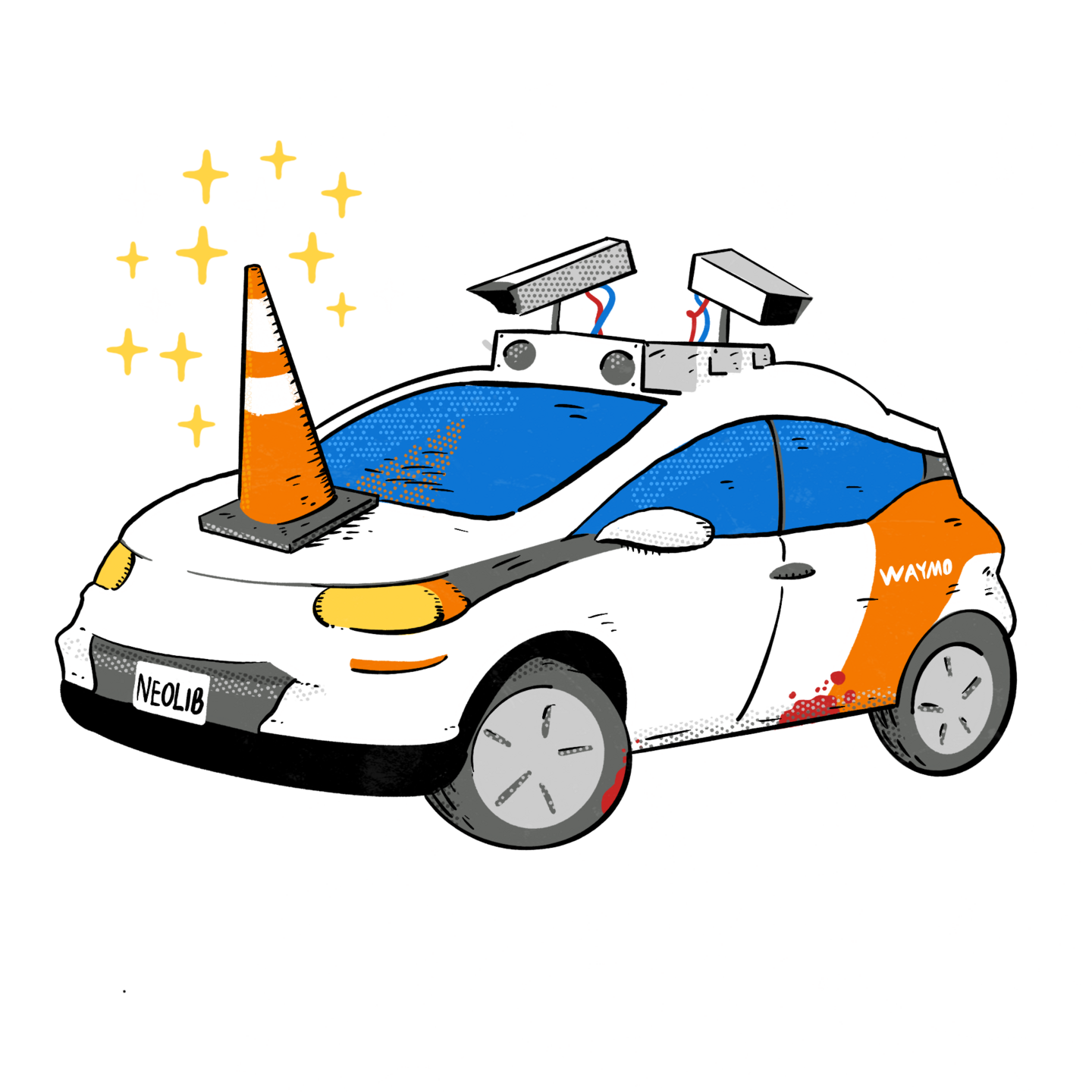
SF Examiner – Waymo went on SF lobbying spree last year
Editors note: Waymo is clearly financial underwater unless they can start to serve airports like SFO. They had paid lobbyists try to work their magic 348 times in 2024 alone.
See original article by Adam Shanks at the San Francisco Examiner
Waymo more than doubled its lobbying of San Francisco officials in 2024, according to city disclosures updated last week.
The autonomous-vehicle company, whose whirring white Jaguars are now commonplace on San Francisco streets, paid lobbyists to meet with city government officials 348 times last year, compared with 137 times in 2023.
The increased lobbying activity came as Waymo looked to improve its once shaky relationship with city leaders.
The company — which is owned by Alphabet, the parent company of Google — has also embarked on a robust push to gain access to San Francisco International Airport, which could be a major source of revenue but remains staunchly opposed by labor unions.

A Waymo spokesperson told The Examiner in an email that the company is committed to consistently engaging with policymakers and regulators as it expands. Waymo is easily the largest player in the game in San Francisco, with more than 300 cars available to passengers and millions of trips taken last year, according to the company.
And it’s trying to grow.
Access to the airport is coveted by taxis, app-based ride-hailing companies, and now Waymo, as a source of thousands of BART-wary customers willing to pay top dollar for a ride into The City.
Passenger rides are also a financial boon to the airport itself, which receives a $5.50 fee for every trip to and from the airport by Uber and Lyft. That adds up to about $50 million in revenue per year for SFO, according to airport data gathered by SFGATE.
Waymo told The Examiner that there is high demand, according to surveys of its customers, for trips to the airport.
Last month, Mission Local reported that Waymo had rekindled its request to The City’s Planning Department to obtain a first-of-its-kind permit that would allow it to map the airport for use by its autonomous vehicles.
The Teamsters, a union that represents drivers, is eyeing Waymo carefully.
It accused Waymo last year of violating the law by failing to disclose lobbying of airport officials. The Teamsters, too, stepped up their lobbying of local officials on matters related to autonomous vehicles, but at a level far below that of Waymo.
“These companies know that their products are unpopular, unsafe, and bad for working families, so they’re trying to steamroll policymakers and the public by putting AVs on the road before anyone has a chance to find out just how dangerous they are,” Peter Finn, Teamsters Western Region International Vice President and President of Joint Council 7, said in a statement last year.
Meanwhile, the autonomous-vehicle company has also looked to improve its relationship with government officials.
Former San Francisco Fire Chief Jeanine Nicholson, who retired last year, was sharply critical of autonomous-vehicle companies when state regulators were considering permitting them in 2023. The fire department cited a number of instances in which the driverless vehicles, not yet permitted to carry paying passengers, allegedly obstructed first responders at the scenes of emergencies.
San Francisco went as far as to sue the California Public Utilities Commission over its August 2023 decision to grant Waymo and Cruise authorization to accept paying passengers. (A state appeals court ruled against The City earlier this month; it has not announced whether it will look to appeal the decision.)
Now, the political landscape in and around City Hall has changed significantly.
Mayor London Breed lost her reelection bid. Jeffrey Tumlin, formerly the director of the San Francisco Municipal Transportation Agency, resigned and returned to the private sector. Nicholson retired, as did San Francisco International Airport Director Ivar C. Satero, last year.

Their replacements arrive after Waymo continued to strengthen its foothold in San Francisco, and across the country, and as the company’s main competitor here exited it.
Cruise, which was permitted by state regulators to solicit paying passengers in autonomous vehicles simultaneously to Waymo in 2023, was forced to take its cars off the streets after an incident with one of its vehicles. Later that year, a Cruise vehicle struck a woman who had previously been struck by a human-driven vehicle while crossing the street; the Cruise car dragged the downed woman, causing significant injuries.
State regulators accused Cruise of withholding crucial information about the crash, leading it to revoke Cruise’s permit. Despite a fledgling attempt to reenter the market, the company never fully recovered and its owner, General Motors, announced last year that it would shut down Cruise. It stopped lobbying city officials in 2024.
See original article by Adam Shanks at the San Francisco Examiner
